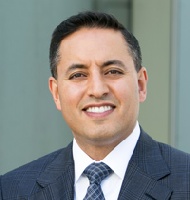San Diego Juvenile Law Lawyer, California
Sponsored Law Firm
-
 x
x

Click For More Info:
-
Law Office of J. Jeffrey Morris
11845 West Olympic Boulevard Suite 1000 Los Angeles, CA 90064» view mapAccident & Injury Law Difficult Cases and Clients Are Welcome
J. Jeffrey Morris is an experienced attorney who has been practicing law in California since 1987.
800-781-3531
Vikas Bajaj
✓ VERIFIEDJuvenile Law, Domestic Violence & Neglect, , DUI-DWI, White Collar Crime
San Diego Criminal Lawyer
Attorney Vikas Bajaj is widely regarded as one the leading criminal defense attorneys in San Diego, CA. With over 16 years experience, Mr. Bajaj has s... (more)
FREE CONSULTATION
CONTACTMichael Desmond McGlinn
Adoption, Juvenile Law, Criminal, Administrative Law
Status: In Good Standing Licensed: 55 Years
Marcus Edward Debose
Juvenile Law, Domestic Violence & Neglect, , Firearms, DUI-DWI
Status: In Good Standing Licensed: 23 Years
FREE CONSULTATION
CONTACTCristina M Sanchez
Other, Federal Appellate Practice, Juvenile Law
Status: In Good Standing Licensed: 21 Years
Amanda Jean Hill
Foreign Investment, Juvenile Law, Criminal
Status: In Good Standing Licensed: 9 Years
Lorraine Theresa Elliott
Health Care, Family Law, Juvenile Law, Criminal
Status: In Good Standing Licensed: 36 Years
 J. Jeffrey Morris Los Angeles, CA
J. Jeffrey Morris Los Angeles, CA


